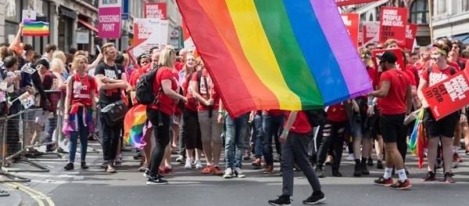February 23, 2018
Diversity shown to help drive business performance but discrimination is still widespread

The economic cost of workplace discrimination to the UK Economy is £127 billion a year, claims new research. Of the £127 billion, £123 billion is due to gender discrimination, £2.6 billion as a result of discrimination against ethnic minorities and £2 billion due to discrimination as a result of sexual orientation. These are the claims of a new report commissioned by INvolve, a membership organisation that champions holistic diversity and inclusion in the workplace, and Cebr, an economics consultancy which analysed over 500 workplaces uncovered a significant positive correlation between diversity and financial performance.











 UK workers are still uncomfortable about having honest conversations at work, with nearly two thirds (61 percent) feel they keep an aspect of their lives hidden in the workplace. The research from Inclusive Employers found family difficulties (46 percent) was the most likely hidden issue at work, followed by mental health (31 percent). One in five also admitted they would hide their sexual orientation while at work. It also found a generational divide, with 67 percent of employees aged between 18 -24 years old keeping something secret compared to 55 percent of those over aged 55 years or over. The data, released to mark National Inclusion Week 2017, found this lack of openness can have negative impacts on workers and employers, with over a quarter of workers (26 percent) admitting they would feel less connected to their workplace if they hid an aspect of themselves and 18 percent saying their performance would suffer.
UK workers are still uncomfortable about having honest conversations at work, with nearly two thirds (61 percent) feel they keep an aspect of their lives hidden in the workplace. The research from Inclusive Employers found family difficulties (46 percent) was the most likely hidden issue at work, followed by mental health (31 percent). One in five also admitted they would hide their sexual orientation while at work. It also found a generational divide, with 67 percent of employees aged between 18 -24 years old keeping something secret compared to 55 percent of those over aged 55 years or over. The data, released to mark National Inclusion Week 2017, found this lack of openness can have negative impacts on workers and employers, with over a quarter of workers (26 percent) admitting they would feel less connected to their workplace if they hid an aspect of themselves and 18 percent saying their performance would suffer.




















December 13, 2017
The ups and downs of wearables for workplace health and wellbeing
by Lee Sadd • AI, Comment, Technology
Businesses in the 21st century have tried just about everything to improve productivity. For a long time, Google and its ilk were seen as model workplaces, with their open offices and abundance of ball pits and bean bags. Then the consensus shifted, and the cubicle or workstation was seen as the paradigm for employee concentration. Now the focus has shifted to technology, and the field of ‘wearables’. Devices like the Fitbit, Google Glass and Apple Watch have come and gone with significant consumer buzz, but relatively low uptake. What failed to impress consumers, however, may yet have a place in business. For better or ill, it seems the companies we work for are increasingly obsessed with collecting our data.
(more…)